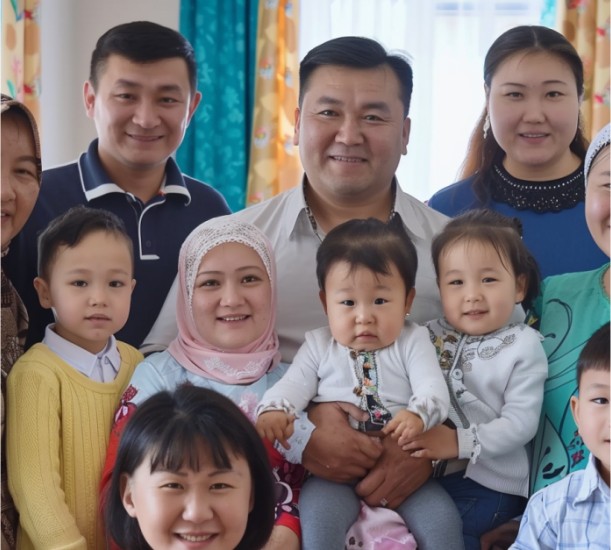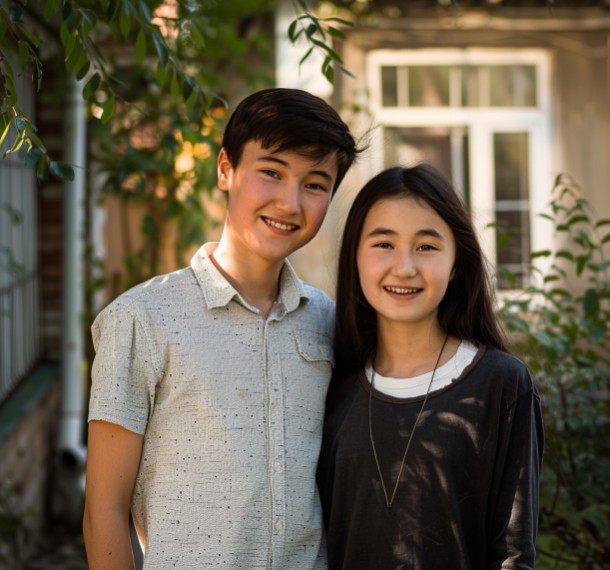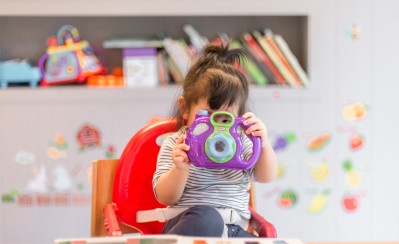School for Foster Parents
The purpose of this project
Adopting a child left without parental care is an important step that needs to be prepared for. Often, adoptive parents do not fully understand how their lives will change with the appearance of a new person in the family. This leads to the fact that children return to children’s institutions, facing even more severe psychological trauma. To prevent such situations, we conduct Schools for Adoptive Parents, which allow you to prepare for accepting a child into a family. SOS Children’s Villages of Kazakhstan is one of the few organizations in the country that conducts Schools for Adoptive Parents in person and in two languages, Kazakh and Russian. Classes are free.
Almaty, Astana, Temirtau
Tasks
Providing children participating in the Project with access to the basic services necessary for their full development.
Strengthening the capacity of families to care for children; assisting families in acquiring pedagogical knowledge, in obtaining a stable source of income in order to meet the needs of children.
Strengthening the community’s capacity to respond to children’s needs so that it can develop and maintain its own ways of meeting the needs of disadvantaged families
Building an active network of partners to ensure that children grow up in a nurturing family environment

How to become a foster parent?
The path of any candidate for foster parenthood begins with the School of Foster Parents. Since 2020, the School of Foster Parents has become mandatory for anyone who would like to take in a child left without parental care.
Before classes, the School’s specialists conduct testing and psychological consultations for candidates. Together, they study the candidates’ motives and expectations regarding foster parenthood, their psychological characteristics, intra-family relationships and attitudes towards raising children.
Having received a positive conclusion based on the testing results, candidates begin training at the School. Upon attending all classes, they receive a confirmation certificate and are invited to a final consultation. Based on its results, the School’s specialists issue a recommendation — if it is positive, the candidate can apply for adoption of the child into the family.
How does the training at the School for Foster Parents work?
Classes include not only lectures, but also trainings, brainstorming sessions, role-playing games and practical work in groups. Our experience shows that practical formats help candidates better absorb the necessary knowledge, maintain interest and motivation.
The curriculum prepares candidates for various aspects of foster care, such as:
- Age crises
- The impact of previous traumatic experiences on the behavior and development of children
- Consequences of abuse
- Features of emotional support for children from the adoptive parent
- Adaptation of a child in a new family
- Establishing boundaries and rules for a child
- Features of school behavior
- Relationships with biological parents and relatives
- Features of interaction with teenagers
- Sex education
- Difficult behavior
- Legal framework for adoptive parenting.
The topics that our program includes allow most candidates to make an informed decision about whether they are ready to accept a child into a family, as well as get rid of myths about children without parental care, prepare for possible difficulties and know how to cope with them.
What happens after the School for Foster Parents?
The next step for candidates for foster parents is to register as a candidate for adoption through Egov.kz. After this, the candidate gets access to the Database of Orphans, where he can view profiles of children for adoption.
Families who have adopted children after our School for Adoptive Parents receive support from our specialists during the adaptation period.
FAQ
How to get to the School for Foster Parents?
Almaty: +7 (707) 689 7800
Astana: +7 (7172) 35 28 98
Temirtau +7 (708) 430 0793
Karaganda: +7 775 616 0923





